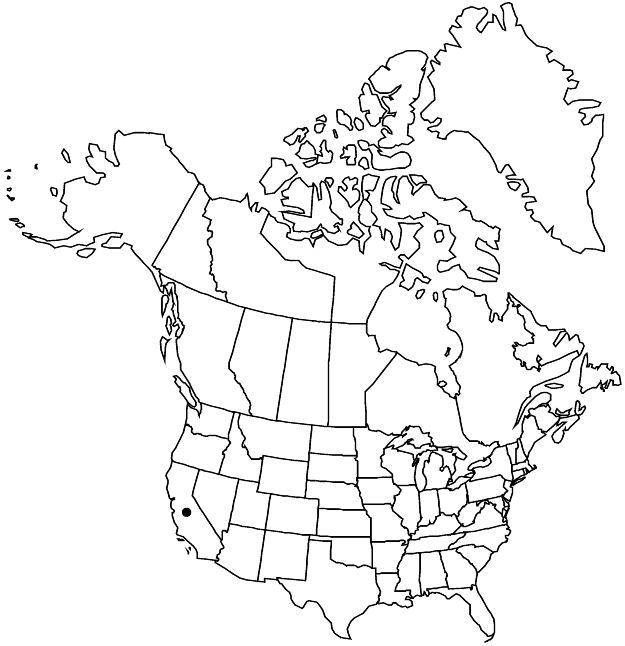Difference between revisions of "Sidalcea oregana subsp. valida"
Perenn. Sp. Sidalcea, 67. 1957.
FNA>Volume Importer |
FNA>Volume Importer |
Revision as of 20:16, 24 September 2019
Plants 0.9–1.2(–1.5) m, with thick, ± fleshy roots or rootstock. Stems decumbent-based, base often rooting, branched or not, solid, often hollow in age, 5–10 mm diam. near base, base usually bristly-hirsute, sometimes with minute stellate hairs, bristle hairs 1–1.5 mm, becoming glabrate distally. Leaves: stipules linear or lanceolate, 4–longer than pedicels, shorter than calyx. Pedicels 1–2 mm. Flowers bisexual or unisexual and pistillate, plants gynodioecious; calyx 7.5 mm, accrescent, finely stellate-puberulent, sparsely, if at all, bristly; petals dark rose-pink to pink-lavender, 10–15 mm; staminal column 4–6 mm, hairy; anthers white; stigmas (6 or)7 or 8. Schizocarps 5–6 mm diam.; mericarps (6 or)7 or 8, 3 mm, sparsely glandular-puberulent, smooth, mucro 0.5 mm. Seeds 1.5–2.5 mm. 2n = 20.
Phenology: Flowering Jun–Sep.
Habitat: Marshes
Elevation: 100–200 m
Discussion
Of conservation concern.
Subspecies valida is known from a small area and is threatened by grazing and marsh alteration. It is found in freshwater marshes near Kenwood, southern outer North Coast Ranges in Sonoma County. It has been listed as endangered in California and also federally. It is similar to subsp. hydrophila except in overall size, spike length, number of flowers, and indument patterns as well as range and habitat. The somewhat fleshy roots are a reflection of its marshy habitat; it is not closely related to the other fleshy-rooted Sidalcea species.
Selected References
None.
